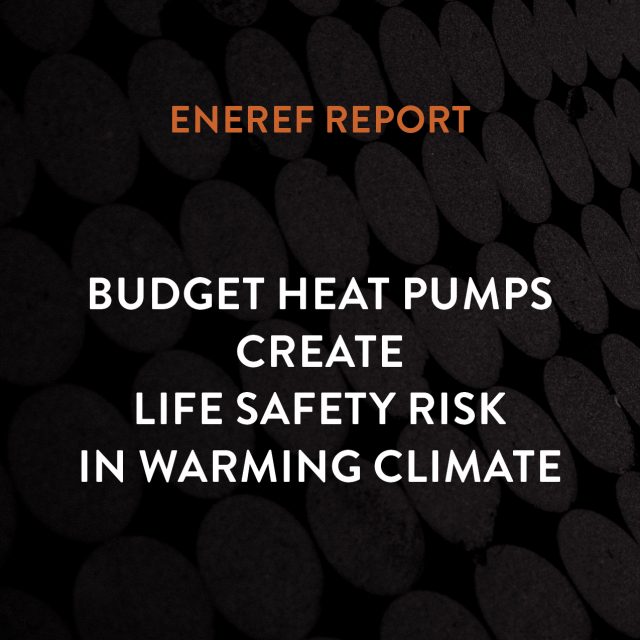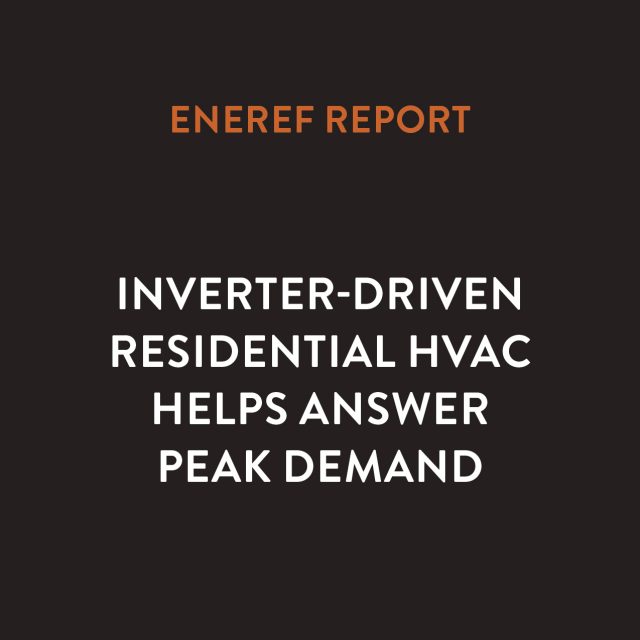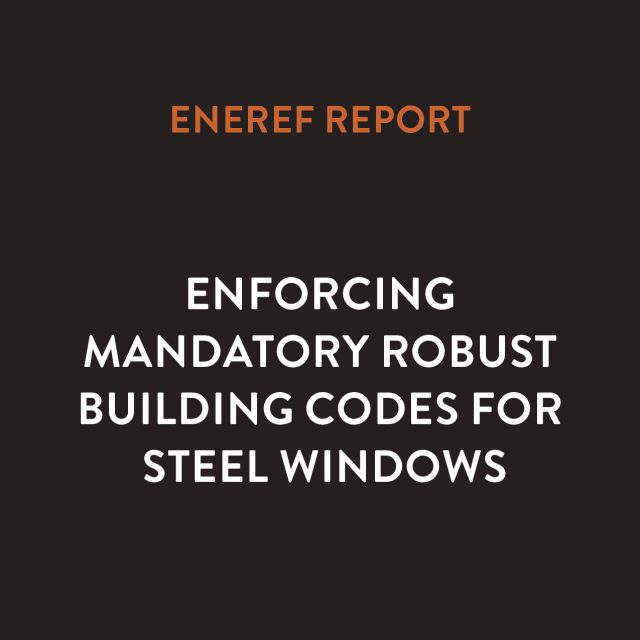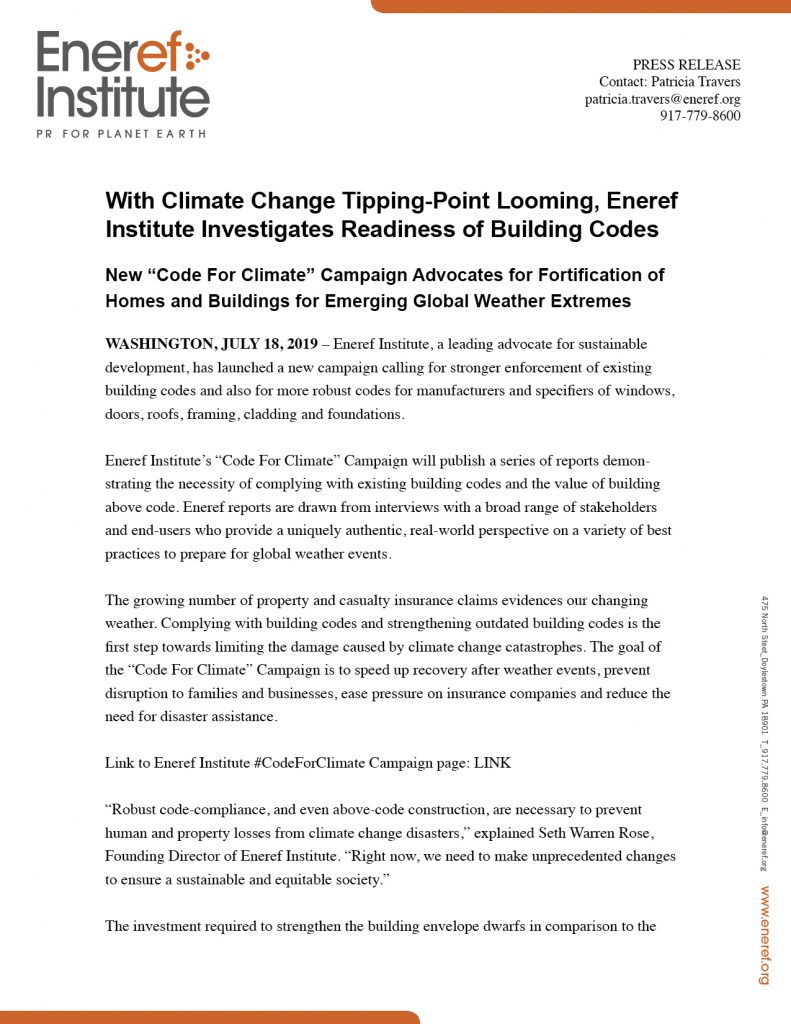
Get Inspired. Lead Others. Drive Change.


Eneref Institute examines the window specification decisions for the oldest US public library.
“We protected the library for another hundred, two hundred years.”
Eneref Institute examines how a luxury home focused on sustainability and structural integrity.
“Everywhere you are in the house, you’re just one window or one view away from the exterior.”
Eneref Institute examines the benefits of variable refrigerant flow inverter-driven air conditioners.
“The average efficiency of air conditioners sold today is less than half the efficiency of systems a...
Eneref Institute examines the benefits of VRF air conditioners in multi-family homes.
“I love how quick the air conditioner works. You just turn it on and it cools or warms the place inm...
Eneref Institute examines the benefit-cost ratio of code-compliance enforcement and above-code construction of steel windows.
“A more exhaustive look at building codes for windows—and better enforcement of existing codes—will...
Eneref Institute examines the window specification decisions for a major university.
“The beauty of working with universities like USC is they want long-term, maintenance- free building...
Eneref Institute examines how a polished concrete floor reduces maintenance costs for a performing arts school.
“It’s an all-around perfect fit for any school.”Hurricane Katrina
Hurricane Katrina
If stronger building codes had been in place, wind damages from Hurricane Katrina would have been reduced by 80%.
Hurricane Katrina $125 billion in property damage.
On January 14, 2020, Eneref Institute presented our “Code for Climate” argument to the media.
“Eneref calls for the creation of more robust building codes and encourages above-code construction.”
Read full text of letter.
What Actions Can We Take to Make a Difference?
What to Do
What to Say
Right now, we need to make unprecedented changes to ensure a sustainable and equitable society.
Eneref Institute advocates for the creation and enforcement of stricter building codes and encourages builders, architects, manufacturers and code officials to meet the minimum mandatory standards and even construct above-code.
You can also call your governing agencies to demand that the building codes for new construction projects in your area are secure and structurally sound against severe weather conditions to protect people and property.
- STRENGTHENING BUILDING CODES SAVES LIVES AND MONEY
A more exhaustive look at building codes for building enclosure components (including windows, doors, walls, roofs, framing, cladding, insulation and foundations)—and better enforcement of existing codes—will speed up recovery after a weather event, prevent disruption to families and businesses, ease pressure on insurance companies and reduce the need for disaster assistance.
- CLIMATE CATASTROPHES ARE WORSENING
The 2017 Hurricanes Harvey, Irma, Maria and Nate caused more than $250 billion in damage in the United States, according to the World Meteorological Organization (WMO). As storms increase in intensity, so will the damage that they inflict.
- SOME MANUFACTURERS ARE CUTTING CORNERS
To sell less expensive construction products, some manufacturers avoid overhead costs associated with testing to guarantee that products perform at code. Damage during weather events is born by the homeowner or building owner, and ultimately the insurer.
- STRUCTURAL EFFICIENCY SHOULD NOT BE OVERLOOKED
Despite the recently increasing number of weather events, many building codes today prioritize energy efficiency, or thermal rating, even at the cost of reduced structural safety. However, structural integrity for storm damage mitigation is just as important as energy efficiency.
- BUILDING CODES SHOULD RECOMMEND THE MOST EFFICIENT SYSTEMS
Energy-efficient technology can significantly reduce global CO2 emissions, according to a 2016 US Department of Energy report. Therefore, for climate change mitigation, the installation of energy-efficient technology, such as inverter driven systems and skylights, should be a mandatory measure in home and building construction.


